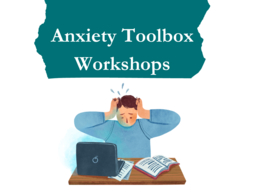Group therapy is helpful for many students in meeting their goals and supporting their growth. RIH offers a variety of therapy groups depending on the semester, availability of group leaders, and student interest (e.g., undergraduate and graduate process groups, support groups, and skill-development groups).
Groups typically involve 1-2 counselors with 8 to 10 students, and they usually meet weekly for 60-90 minutes and students may participate in group therapy across an academic year. You control what and how much you share with the group, and we encourage you to share when you are ready. Group counseling provides unique opportunities to:
- relate with others in a way that can increase self-awareness
- experiment with different ways of interacting
- connect with peers who have similar experiences
- improve interpersonal relationships
A commitment to maintaining confidentiality is required for participation in group counseling.
Students might feel nervous or uncomfortable with the idea of joining a group. This is normal. Pursuing or confronting the things that cause us to feel uneasy can sometimes be the most beneficial way to facilitate change. RIH staff recognizes this; thus, efforts are made to ensure group environments are supportive and safe.
The first step to joining any group is to complete an Initial Consultation appointment. Please visit our appointments page for information about how to schedule an appointment.
For general group questions, please use your student health portal to send a secure message to the Front Desk.
Interpersonal Support Group
In a time where we are transitioning from quarantine/isolation into forming new personal connection peers, this group is here to help students who are struggling to make connections. Are you struggling to establish or maintain connections with other people? Are you having a difficult time disengaging with people you consider to be toxic? This group can help you build those interpersonal skills needed to help make connections with people in a small and safe setting. In this group you will get feedback/guidance from other students with diverse sets of perspectives. The process of giving and receiving feedback can help build confidence in trying to connect better with your peers.
In-person Thursdays from 1 – 2:30 p.m. beginning October 2
Graduate Student Support Group
Pursuing a graduate degree or Ph.D. is an incredible milestone in a person’s academic career. Yet, maintaining wellness within graduate programs can often be challenging. The Graduate Student Support Group is a space for students to connect, share, and grow alongside others. This group will serve as a space to celebrate your strengths, resilience, and creativity while exploring strategies to thrive both academically and personally. Together, we’ll focus on finding a balance between school and personal life, navigating relationships with advisors and peers, and managing stress and academic pressure, all while staying grounded in your values and career goals. This is ultimately a space to support one another, feel empowered, and find strength in community.
Virtual Thursdays from 3 – 4:15 p.m. beginning September 25
Skills Training in the Application of Interpersonal Regulation (STAIR)
STAIR group helps persons who struggle with relationship dynamics and emotion regulation. High-stress experiences overwhelm the emotional system, creating both emotional chaos and numbing, undermining our ability to think and act effectively, and disturbing our sense of self and relationships. The skills training and practice introduced in this program are designed to help you leave behind old patterns and develop new interpersonal behaviors and emotion management skills more consistent with your current life goals.
In-person Wednesdays from 1 – 2:30 p.m. beginning September 17
In-person Tuesdays from 1:30 – 3 p.m. beginning October 7
In-person Fridays from 10 – 11:30 a.m. beginning October 24
Healing from Family Challenges
Healing from Family Challenges is a six-week group that provides psychoeducation and skills that help address the effects of adverse childhood experiences. It helps the members to recognize how these past challenging experiences might be impacting their current functioning and helps individuals identify healthy ways of coping with their experiences. Students transition from surviving past experiences to thriving in the present. The group creates a safe and supportive environment to develop an alternate way of looking at the past and develop a sense of meaning and purpose that help them thrive today.
In-person Wednesdays from 3 – 4:30 p.m. beginning October 15

